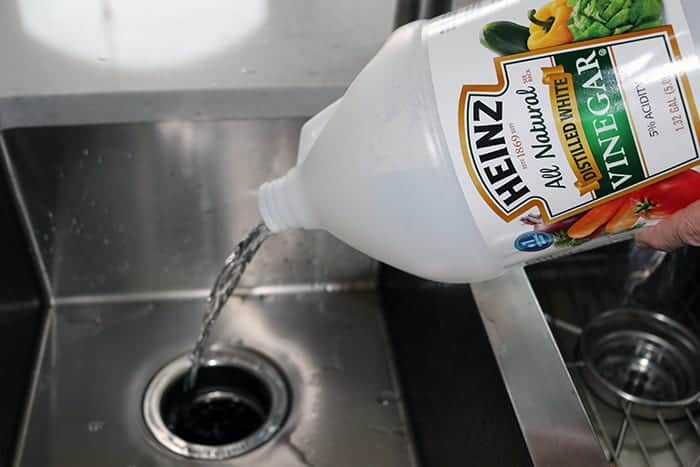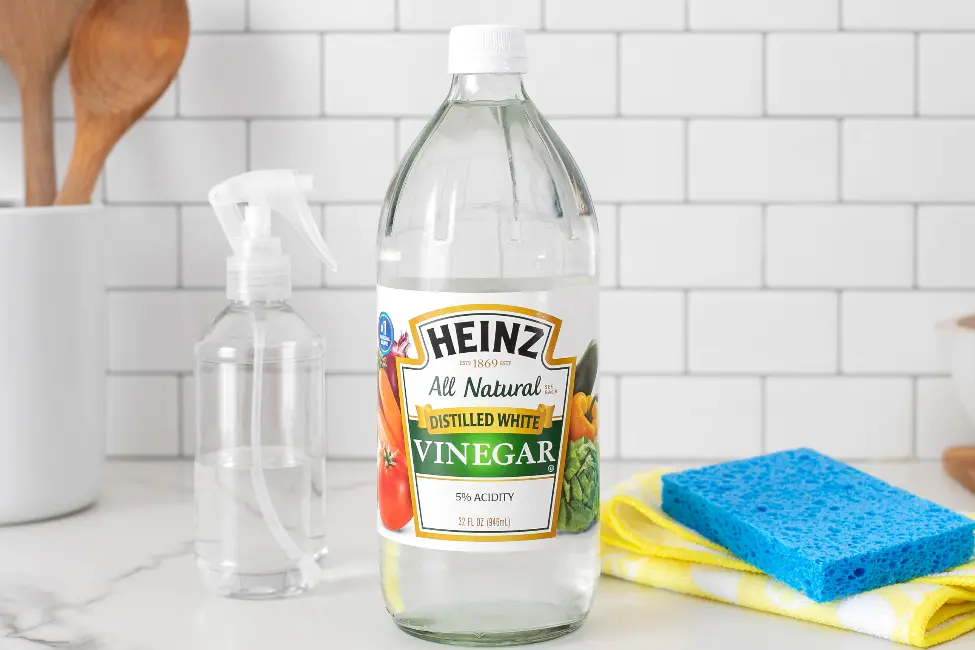To dispose of vinegar, dilute it with water before pouring it down the drain. Alternatively, mix it with baking soda and dispose of it as solid waste.
Vinegar is a common household item with many uses, but what do you do when you no longer need it? Proper disposal of vinegar is essential for environmental safety. While it is a natural product, pouring vinegar directly down the drain can harm aquatic life.
By diluting it with water or combining it with baking soda, you can safely dispose of this acidic liquid. We will explore different methods to help you properly and responsibly dispose of vinegar, ensuring you do your part to protect the environment.

Credit: www.everydaycheapskate.com
Why Dispose Of Vinegar Properly
Vinegar is a versatile product that is commonly used in cooking, cleaning, and as a natural remedy. However, when it comes to disposing of vinegar, it’s important to do so properly to minimize its impact on the environment and to avoid potential health hazards. Proper disposal of vinegar is necessary to prevent pollution, protect wildlife, and ensure the safety of our water sources and ecosystems. In this article, we’ll explore why it’s crucial to dispose of vinegar in a responsible manner, and how to do so effectively.
Impact On The Environment
Improper disposal of vinegar can have detrimental effects on the environment. When vinegar is poured down the drain or directly into bodies of water, it can disrupt the balance of aquatic ecosystems, harm aquatic life, and contribute to water pollution. The acidity of vinegar can alter the pH levels of water, impacting the survival of plants and animals. Furthermore, the chemicals in vinegar can leach into soil, contaminating groundwater and affecting the health of terrestrial organisms.
Health Hazards
Vinegar poses potential health hazards if not disposed of properly. In concentrated form, vinegar can cause skin and respiratory irritation. Additionally, if mixed with certain chemicals, it can produce harmful fumes. When disposing of vinegar, it’s essential to avoid direct contact with the skin and eyes, and to prevent inhalation of vapors. By disposing of vinegar safely, we can minimize the risk of accidental exposure and ensure the well-being of ourselves and others.

Credit: homemindful.com
Safety Precautions
It is essential to take safety precautions when disposing of vinegar to prevent any mishaps or harm. By following the proper guidelines, you can ensure a smooth and safe disposal process.
Identify The Type Of Vinegar
Before disposing of vinegar, identify the type you are dealing with, whether it’s white vinegar, apple cider vinegar, or any other variation. This will help you determine the appropriate disposal method.
Read The Label
Always read the label of the vinegar bottle to understand if there are any specific instructions for disposal. Some types of vinegar may have special guidelines due to their ingredients.
Handle With Care
When it comes to handling vinegar for disposal, ensure to wear protective gear, such as gloves and a mask. Avoid direct contact with skin or eyes.
Methods Of Disposal
Methods of Disposal:
Neutralization
When disposing of vinegar, consider neutralization with baking soda
Dilution
Dilute vinegar with water before disposing of it in the sink
Household Hazardous Waste Disposal
Take excess vinegar to a hazardous waste disposal facility for proper disposal
Alternative Uses For Vinegar
Vinegar is a versatile household product that can be used for more than just cooking. It has a wide range of alternative uses that can be beneficial for cleaning, gardening, and personal care. Incorporating vinegar into your cleaning routine can save you money and help reduce your exposure to harsh chemical cleaners. You can also utilize vinegar in gardening to control weeds and keep pests at bay. Additionally, vinegar has multiple applications for personal care, from soothing sunburns to deodorizing feet.
Cleaning Purposes
Vinegar is a fantastic natural cleaner for various surfaces in your home. It can be diluted with water and used to clean kitchen countertops, glass, and stainless steel appliances. Using a solution of vinegar and water can also effectively remove hard water stains and soap scum in bathrooms. The acidity of vinegar helps to break down these stubborn deposits, making it an excellent alternative to commercial cleaning products.
Gardening
Vinegar can be employed in the garden to control weeds without resorting to harsh chemicals. A solution of vinegar and water can be sprayed directly on pesky weeds to effectively kill them. When used carefully, vinegar can also deter pests such as slugs and ants. Its natural properties make it a safer option for your garden compared to synthetic pesticides.
Personal Care
For personal care, vinegar can be beneficial in various ways. It can act as a natural deodorant by helping to neutralize body odor. Vinegar can also soothe sunburns when applied gently to the affected area. Additionally, incorporating vinegar into foot baths can help combat foot odor and fungal infections. Its antibacterial properties make it a useful natural remedy for various personal care needs.

Credit: www.pinterest.com
Frequently Asked Questions For How To Dispose Of Vinegar
How Do You Dispose Of Bottles Of Vinegar?
To dispose of bottles of vinegar, first check if your local recycling program accepts glass bottles. If yes, rinse the bottle, remove any lids or caps, and place it in the recycling bin. If not, safely seal the bottle, wrap it in newspaper or a plastic bag, and dispose of it with your regular trash.
When Should You Throw Out Vinegar?
Throw out vinegar when it becomes discolored, smells off, or develops mold. Vinegar lasts indefinitely but loses its potency over time. It’s safe to consume even if it has expired, but it may not be as effective. Check the vinegar’s appearance, smell, and taste, and discard if it seems spoiled.
How Do You Dispose Of 30 Vinegar?
You can dispose of 30 vinegar by diluting it with water and pouring it down the drain. Alternatively, you can mix it with baking soda to create a cleaning solution. Always check local disposal regulations for any specific instructions.
What Does Vinegar Break Down To?
Vinegar breaks down into acetic acid and water. It is a natural product that is commonly used for cooking and cleaning purposes.
Conclusion
Disposing of vinegar can be done safely and responsibly by following a few simple steps. Whether it’s through dilution or proper disposal methods, it’s important to consider the environmental impact of vinegar. By understanding the options available, we can ensure that we dispose of vinegar in a way that is both effective and eco-friendly.


